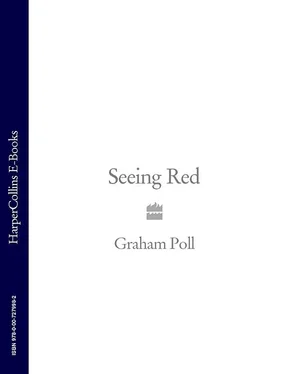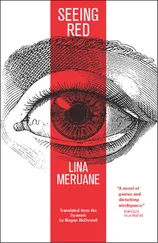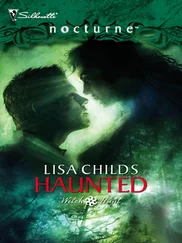Yet my penultimate match was a cracker. The League One play-off semi-final second leg between Nottingham Forest and Yeovil at Forest’s City Ground saw the advantage swing one way and then the other. It went into extra-time and ended with Yeovil winning 5–2 on the night for a 5–4 aggregate victory. Yeovil had been playing in the Conference only four years before yet they had beaten Forest, who had been European champions twice. I had to send off Forest’s David Prutton for two cautions but nobody could quibble with the decision and it was a truly spellbinding match that I thoroughly enjoyed.
Then, as the days ticked away towards my final game, some of the top men in refereeing became nervous. By then, my imminent retirement was an open secret and they thought I might give an explosive interview before the last match, or make some grand gesture during the action (I am not sure what – perhaps they thought I would leap and head in a goal, although they wouldn’t have thought that if they’d ever seen me play). I was upset that they even thought those things. In fact, the precise opposite was true. I fended off all approaches from the media before my final match because I wanted to ensure that the fixture – between West Brom and Derby – was about the clubs and their fans, not about the referee.
Six days before the West Brom–Derby game, I was a guest of Vodafone at the Champions League Final between Liverpool and AC Milan in Athens. My hosts paid me a fee to referee a little match between the media and some of their other guests and to host a pre-match Q & A with Teddy Sheringham. But when they suggested I might take part in a press conference, I had to say ‘No’. All the questions would have been about my retirement and if I had answered honestly, then my last game would have become the circus I was trying to avoid.
And so, after twenty-seven seasons, I reached my final game, match 1554, at Wembley – and I make no apologies at all for being absolutely, utterly, overjoyed to bow out at the national stadium. There were three reasons for that feeling. Firstly, I was still the official the authorities wanted to referee a game worth at least £ 52 million to the winning club. Richard Scudamore, Keith Hackett and the rest were confident in my ability to take charge of that match and that meant a lot to me. It gave me a sense of pride. I see no reason to apologize for that. Secondly, it was natural for me to want to referee at the ‘new’ Wembley. I had taken charge of the last FA Cup Final in 2000 before they pulled down the old stadium and of course, like every other football fan in the country, I wanted to experience the new place. Thirdly, it provided the perfect way of saying ‘thank you’ to some important people. I scrambled around getting tickets and managed to ensure that, as well as Julia and our children, my mum and dad, two of my sisters and some friends were there to share my last big occasion as a referee. It was profoundly important to me that my mum and dad, who were there when my refereeing career started, were there when it finished.
I am delighted to report that it finished well. The match officials were put up at the Hendon Hall Hotel, which was where I had been before ‘my’ FA Cup Final and which has a unique place in English football history because it was where the England team stayed before the 1966 World Cup Final. Staying there in 2007 gave the occasion a special feel for me, but I can honestly say that I was not at all emotional. The time had come to call time on my career, and it just felt right.
People who were in on the increasingly unsecret secret about my retirement noted that I sung the national anthem lustily that day at Wembley, but those who knew me well realized that I always did. Belting out ‘God Save The Queen’ was my way of forcing out any last-minute nerves. I will admit that I could not look across to where I knew my mum was sitting, however. She had said to me, ‘Think of me when you sing the anthem.’ So I knew she’d be looking and that if we had made eye contact, I would have lost it. I will also concede that when I stood there, on a red carpet at a full house at Wembley, singing the national anthem, I did think back to those games in the parks when I started. The truth is, I always did that during anthems before big games that I was about to referee. For some reason, my mind always went back to games in a particular park in Stevenage – Hampson Park, an exposed, windy plot up on a hilltop near a water tower.
At Wembley, on 28 May 2007, it was a great help to have two really good assistants, Darren Cann and Martin Yerby, plus Mike Dean as fourth official. They all knew it was my last game and I also told Jim Ashworth, the manager of the National Group refs, who was ‘in charge’ of the officials for the Play-off Finals. Jim was also retiring, so the Derby–West Brom match was his last as well, and I told him the truth about my finishing so that we were all relaxed about the situation. I was lifted by the little words and gestures by which Jim and the others let me know they wanted my last game to go well.
Twelve minutes into the match, West Brom’s Jason Koumas danced past a couple of opponents and into the Derby area. Tyrone Mears slid in with a tackle and upended Koumas in the process. I was really close to play and signalled ‘no penalty’ by slicing the air with both hands like a giant pair of scissors. Martin Yerby, the assistant who was on the far side of the pitch but in line with the incident, said, ‘Great decision, Pollie’, but I heard Deano, my mate the fourth official, mutter, ‘Oh no!’ I am told that my mum and sisters, who were also in line with the incident, glanced at each other with a wide-eyed, raised eyebrows look. They didn’t say anything to each other, but they thought it was a penalty. I would suggest that 80 per cent of the paying public inside the stadium probably agreed with them. The West Brom fans certainly did, and started to let me know. But we had a fifth official, Trevor Massey, to cover for injuries. Where he was sitting, he could see a TV monitor and he ran down and said to Deano, ‘He got it right. The defender got the ball. Pollie got it right.’
It was enormously satisfying to get such a big call correct in such a big game. There was another penalty appeal by West Brom in the second half which I turned down – it was a much easier call, but it was right as well. Yet, if I am 100 per cent honest with myself, I know I should have sent off West Brom’s Sam Sodje and Derby’s Tyrone Mears in the second half. Both had already been cautioned and each committed a second cautionable offence, yet I didn’t get the cards out. That was because I knew that the headlines would have been about me sending players off in my last game. People would have said, ‘Typical Graham Poll. It’s his last game and so he has to use his red card.’ So, although much of the media praised me for getting the penalty decisions correct, the honest truth is that my refereeing that day was compromised. I did not feel I could referee as I should have done; I did not feel I could send someone off for two cautions. I’d have red-carded someone for punching an opponent, or for a handball on the line, but not for two cautions. To mangle a well-known saying, I erred on the side of not cautioning.
But I certainly enjoyed the day. On the major occasions of my career – the big, set-piece matches – I always aimed to referee as if it were a normal game of football. Because it always was. Inside the white touchlines, it was just twenty-two blokes and me, as it had been all those years ago in Hampson Park. Yet, if by sixty minutes or so of a big match, things had gone well, I did allow myself a moment to take in the surroundings and the circumstances. A referee knows by sixty minutes whether he has ‘got’ the game – whether his decision-making and management have been good enough. Decisions become more critical in the last thirty minutes, because that is when the results of games are determined. By then, however, if a referee has had a good first hour, the players will accept the decisions made in the last half an hour, more often then not. And so, at Wembley in my last professional appointment, after an hour or so, I did permit myself to have a look around, soak it all in and think where I was and how far I had come. I took in the magnitude of what my job had been – refereeing huge matches like the Play-off Final – and acknowledged that it was ending. I did not experience an iota of sadness; I felt only that the race was run.
Читать дальше












